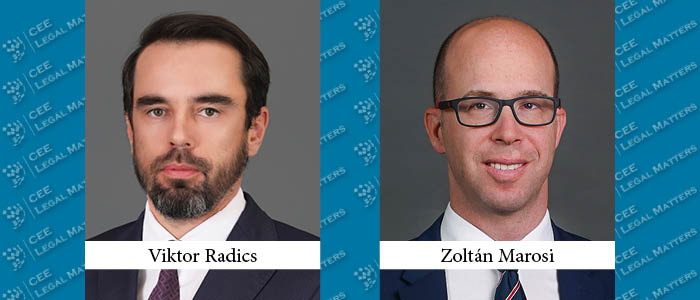In a recent case (under No. BDT2023.4623), the Budapest Court of Appeal made an important decision on the issue of jurisdiction. The case related to challenging the fairness (and the validity) of general terms of business (GTCs) of foreign service providers engaging in business with consumers in Hungary.
The decision is significant for all such providers as the Budapest Court of Appeal unequivocally established that Hungarian courts do have jurisdiction to entertain and adjudicate on such challenges.
The case concerned a claim by the public prosecutor, which has the right, under Hungarian law, to challenge unfair GTCs applicable to consumers and to ask the Hungarian courts to establish whether clauses or provisions are invalid.
The prosecutor initiating cases like this has proved to be successful against Hungarian operators in several industries, most recently banking, insurance, real estate and aviation. But past cases all concerned businesses (ie companies) established in Hungary as defendants, where the issue of jurisdiction didn’t come up.
To our knowledge, this case is the first where the prosecutor has decided to challenge GTC provisions applied by an operator established in another EU country, meaning a foreign defendant appeared in the case.
The issue of jurisdiction quickly became a key point of contention. Under the applicable EU law rules (Regulation 1215/2012/EU, the Brussels 1a Regulation), a defendant should be sued in the country where it is established. But the Brussels 1a Regulation also recognizes that in matters relating to torts, a defendant can also be sued in the courts where the harmful event occurred or may occur.
The defendant argued that the prosecutor's challenge to establish the unfairness of a GTC provision cannot be a “matter relating to a tort” since such challenges are merely aimed at establishing the invalidity of the contractual clause in the GTC, but have nothing to do with torts or damages, which are a separate matter.
The Budapest Court of Appeal disagreed. It relied on the European Court's judgment in the C-191/15 Verein für Konsumenteninformation case, in which an Austrian consumer protection association sued a Luxembourg company. In that case, the European Court established Austrian jurisdiction. The court held that in matters of consumer protection, a preventive action (eg to prohibit the use of an unfair contractual clause) can be a “matter relating to a tort” under the Brussels 1a Regulation (when read together with the applicable EU rules).
The European Court found that under these rules, a company that directs its activities to the Member State where a consumer is domiciled can be sued in that Member State. The Budapest Court of Appeal also confirmed the existence of Hungarian jurisdiction for these types of claims against EU-based foreign defendants.
This might not be the Hungarian courts’ final word on the matter. The case was remitted to the first instance on substance, where it could be further escalated to the Hungarian Supreme Court. But we can expect the Hungarian public prosecutor's office to challenge further GTCs employed by companies established in the EU with a significant Hungarian consumer base. The prime targets are likely to be online service providers (including webshops, online platforms and social media companies).
Companies should review their GTCs directed to Hungarian consumers to avoid allegations of unfairness. In addition, they should also take steps to prepare for a possible approach by the prosecutor. By taking preparatory steps, companies can avoid costly and protracted litigation and they can streamline any possible litigation to involve only the points where a successful defense can be reasonably expected on the merits.
[Disclosure: DLA Piper Hungary represented the defendant in the case]
By Viktor Radics and Zoltán Marosi, Partners, DLA Piper Hungary
